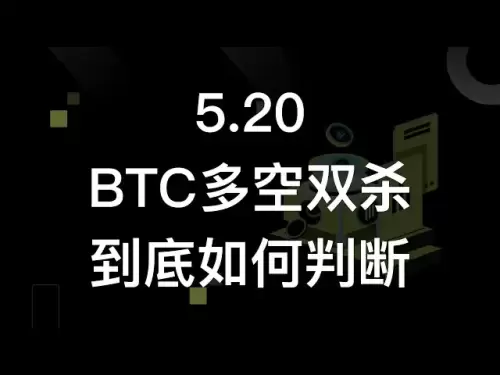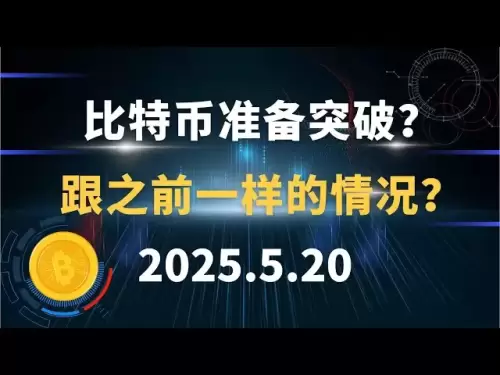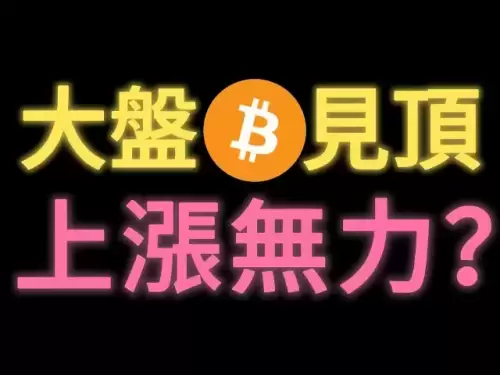 |
|
 |
|
 |
|
 |
|
 |
|
 |
|
 |
|
 |
|
 |
|
 |
|
 |
|
 |
|
 |
|
 |
|
 |
|
Cryptocurrency News Articles
Aptos Improvement Proposal 119 (AIP-119) Proposes to Slash Staking Rewards by Nearly 50%
Apr 20, 2025 at 12:30 am
Aptos, the Layer 1 blockchain known for its speed and Move-based development ecosystem, is once again stirring the pot — this time with a bold proposal

Aptos, the Layer 1 blockchain renowned for its rapid transaction speeds and the burgeoning Move-based development ecosystem, is preparing for a substantial shift in its token economic model.
Aptos Improvement Proposal 119 (AIP-119), co-authored by Aptos Labs' Head of Production Engineering Sherry Xiao and Mirage developer Moon Shiesty, proposes a significant reduction in Aptos (APT) staking rewards. The move aims to discourage passive income and encourage deeper contributions to the network.
Currently, staking Aptos yields around 7%, a rate that has attracted interest but also sparks discussion as it compares to other leading blockchains. For instance, Ethereum's average staking yield stands at 3.1%, while Avalanche's is 7.6% and Cosmos' is 15%.
"This proposal focuses on reducing the passive income opportunities in the ecosystem and instead incentivizing participants to engage in riskier yet potentially more rewarding activities," the proposal reads.
The proposal suggests cutting the annual passive income yield to 3.79%. This adjustment, if approved, will be implemented over a three-month period.
The proposal arises from observations that, despite a vibrant developer community and a rapidly expanding ecosystem, Aptos' passive income opportunities are outpacing its productive activities. This imbalance could eventually hinder the long-term sustainability of the network.
To encourage a shift toward more engaged participation, the proposal aims to reduce the passive income opportunities from activities like staking and node operation. In their place, the focus will shift to riskier but potentially more rewarding avenues.
These include:
* Contributed to decentralized physical infrastructure networks (DePINs)
* Engaging in MEV (Miner Extractable Value) strategies
* Developing advanced tooling and protocols for Aptos's ecosystem
These activities require deeper technical expertise and financial commitment, naturally selecting for smaller groups of contributors who are more deeply invested in the success of the Aptos ecosystem.
This move will also reduce the profitability of running a node, especially for smaller node operators who lack the technical resources and financial commitment required for engaging in riskier, higher-return activities.
Smaller validators, particularly those in emerging markets, might face difficulties adapting quickly enough and could be gradually pushed out of the validator set. This could lead to a smaller number of larger and better-equipped validators, potentially impacting the network's decentralization.
To mitigate this risk, the proposal suggests that the Aptos Foundation implement a stake-matching model, similar to Solana's delegation program, to cushion the impact on small validators and encourage a broader participation in the validator set.
This model would be focused on ensuring that smaller, technical contributors are not excluded from actively supporting the Aptos chain.
The proposal also suggests reviewing current delegations and potentially removing validators who aren't actively contributing to the network's health. This move would make validator support performance-based, aligning incentives with Aptos' long-term vision of a high-performance and developer-first chain.
Ultimately, the goal is to create an ecosystem where the emphasis is on building, innovating, and contributing to the network in meaningful ways, rather than simply collecting passive returns for minimal effort.
The authors of AIP-119 will be collecting community feedback for four weeks before taking the proposal to mainnet governance. If this proposal is approved, we can expect to see a gradual reduction in staking rewards, perhaps over a three-month period, to allow validators time to adapt or explore alternative revenue models.
Disclaimer:info@kdj.com
The information provided is not trading advice. kdj.com does not assume any responsibility for any investments made based on the information provided in this article. Cryptocurrencies are highly volatile and it is highly recommended that you invest with caution after thorough research!
If you believe that the content used on this website infringes your copyright, please contact us immediately (info@kdj.com) and we will delete it promptly.
-

- With AI predicting that Bitcoin will hit an all-time high in 2026, investors are looking for ways to capitalize on the expected increase.
- May 21, 2025 at 01:00 am
- Cloud mining is a great way to earn money without having to worry about maintaining a mining machine. Among the best websites, HashBeat's new website is a great choice because it is easy to use.
-

-

-

-

-

-

-

-

- If the U.S. stablecoin bill, the "GENIUS Act," passes smoothly, its significance will be tremendous, and I even think it could rank among the top five in Crypto history.
- May 21, 2025 at 12:40 am
- Although abbreviated as the GENIUS Act, which translates directly to the "Genius Act," it actually stands for Guiding and Establishing National Innovation for U.S. Stablecoins




























































